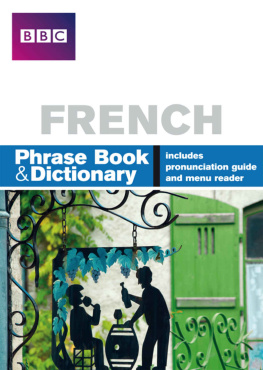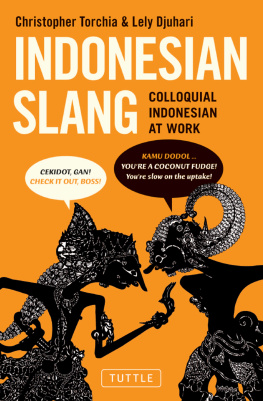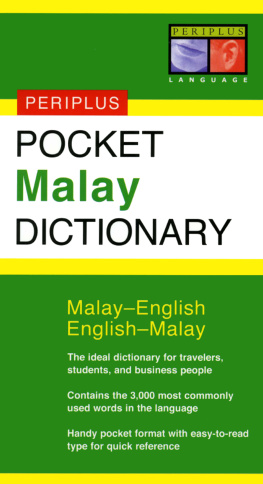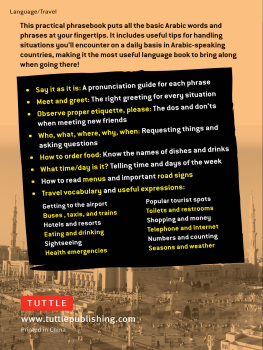Phrasebook from MobileReference
Upgrade to the Advanced version to add Time, Duration, Days, Months, Colors, Bus, Train, Directions, Food, Drink, Authorities, and many more phrase lists in each language.
_________
German phrasebook
German is a main language of Germany, Austria, parts of Switzerland, and Liechtenstein. Almost similar languages are also spoken in the French region of Alsace (German: Elsass ), in the Italian province of Alto Adige (German: Sdtirol ), parts of Luxembourg, and a small part of Belgium.
Grammar
In common with many other European languages, German has two "you" verb forms which denote the relationship the speaker has to someone else. To express familiarity, one uses the du form; for formality, the Sie form. As a general rule the Sie form is used when one might address someone as "Madam" or "Sir". If on first name terms, one uses the du form. Grammatically, the Sie form takes the 3rd person plural ending.
There are 3 different noun genders: masculine, feminine and neuter. The article of a noun depends on the gender: der (m), die (f) and das (n).
Furthermore, German nouns are declined. There are four grammatical cases: nominative (subject), accusative (direct object), genitive (posessive), and dative (indirect object.) Each varies depending on the noun's gender and whether it is singular or plural.
An orthographic peculiarity is that all nouns, even those in the middle of a sentence, begin with a capital letter.
There are very strong accentual and dialectic differences in German-speaking countries. A German from the north and one from the south can have great difficulty understanding each other's dialects. Standard German, or "Hochdeutsch", is universally known, although not everyone speaks it well. Generally, the further south, the broader the dialect.
Along the coastline in the north of Germany, many people speak a related language called Plattdtsch ("Plattdeutsch" in German). It is strongly related to Dutch or Danish and German; most Platt speakers will understand standard German.
The German spoken in Switzerland is referred to as Schwyyzerdtsch . There are various varieties of Swiss German depending on the region.
_________
Pronunciation guide
German pronunciation is relatively straightforward, although spelling is somewhat more involved.
Vowels
a
like 'u' in "cup", 'a' in "target"
e
like 'e' in "ten", 'a' in "bake"
i
like 'i' in "bingo"
o
like 'oo' in "door", like 'o' in "top"
u
like 'ou' in "you"
(Umlaut, transcribed as 'ae') like 'e' in "ten", 'a' in "band"
(Umlaut, transcribed as 'oe') like 'i' in "Sir"
(Umlaut, transcribed as 'ue') like 'y' in 'Tyrell'
y
same as '', but also consonant "j" in words of foreign origin ("Yacht")
Length of Vowels
A vowel is shortened when followed by a double consonant.
A vowel is lengthened by a subsequent 'h', or by a double vowel, depending on the word. An exception is 'i', which is lengthened by a following 'e' or 'eh'.
Examples: the h in Hahn makes the a long; the aa in Haar is also long, the e in Tier makes the i long. (See below for "Diphthongs".)
Consonants
Consonants are pronounced quite strongly (except perhaps the 'r').
b
like 'b' in "bed"
c
like 'ts' in "bits" before 'i' and 'e'; like 'k' in "kid" else
d
like 'd' in "dog"
f
like 'ph' in "phone"
g
like 'g' in "go" (never as in "giraffe")
h
like 'h' in "help"
j
like 'y' in "yoga"
k
like 'c' in "cat"
l
like 'l' in "love"
m
like 'm' in "mother"
n
like 'n' in "nice"
p
like 'p' in "pig"
q
like 'q' in "quest" (always with "u")
r
like 'r' in "arm", like 'r' in "feather" (often like silent "h")
s
like 'z' in "haze"
t
like 't' in "top"
v
like 'f' in "father", or like "v" in "victory"
w
like 'v' in "victory", never like 'wh' in "whisky"
x
like 'cks' in "kicks"
z
like 'ts' in "bits"
like 'ss' in "hiss"
Common diphthongs and ligatures
Note: these combinations are not always used as diphthongs. At syllable boundaries and sometimes even in a syllable, they are spoken as separate vowels (e.g. soeben zoh-AY-ben )
au
like 'ow' in "how"
ae
transcription for '' if not available on a keyboard or in URLs
ah
like 'a' in "bar", longer than 'a'.
u
like 'oy' in "boy"
ei
like 'i' in "wine"
eu
like 'oy' in "boy"
eh
long 'e'
ie
like 'ee' in "week", longer than 'i'.
ieh
like 'ee' in "week", longer than 'i', fundamentally no difference to 'ie'.
oe
transcription for '' if not available on a keyboard or in URLs
oh
like 'oo' in "door", longer than 'o'.
ue
transcription for '' if not available on a keyboard or in URLs
uh
like 'ou' in "youth", longer than 'u'.
ch after 'a', 'o' and 'u'
like 'ch' in Scottish "loch", spoken in the throat, like 'j' in Spanish
ch after 'i' and 'e'
like 'h' in "huge"
ch at the beginning of a word
like 'ch' in "character"
ck
like 'ck' in "blocking"
ng
like both 'ng' in "singing", never like 'ng' in "finger"
ph
like 'f' in "fish"
sch
like 'sh' in "sheep"
sp at the beginning of a word
like 'shp' in "fish pool"
ss
like 'ss' in "hiss", in contrast to '', makes the preceding vowel shorter. Also used as transcription for '' in URL or on foreign keyboards.
st at the beginning of a word
like 'sht' in "ashtray"
_________
German Phrase List
_________
Basics
Hello.
Guten Tag. ( GOO-ten tahk ) better: Hallo
Hello. (In Austria and the south of Germany only)
Gr Gott! ( gruus got ) (formal, literally: "God may greet you", originally from Gr Dich Gott!)
Hello. (In Austria and Bavaria only)
Servus! ( SEHR-voos ) (to a friend / informal but polite)
Hello. (coastline in the north of Germany only, to 12 o'clock)
Moin, Moin! ( moin moin )
Hello. (coastline in the north of Germany only, after 12 o'clock)
Moin! ( moin )
Hello. ( informal )
Hallo. ( hah-LOH )
How are you?
Wie geht's? ( vee gayts? ) used as a real question, not a form of greeting."
Fine, thank you.
Danke, gut. ( DAN-keh, goot )
What is your name?
Wie heit du? / Wie heien Sie? ( vee highst doo? / vee HIGH-sen zee? )
My name is ______.
Ich heie ______. ( ikh HIGH-seh ) Nice to meet you.: Nett, Sie kennen zu lernen. ("net zee KEN-en tsoo LER-nen")
Nice to meet you. ("informal")
Sehr angenehm. ( zayr AHN-geh-naym )
Please.
Bitte. ( BIT-tuh )
Thank you.
Danke sehr. ( DAN-keh zayr )
Thanks.
Danke. ( DAN-keh )
You're welcome.
Bitte sehr! ( BIT-teh zayr )
Yes.
Ja. ( yah )
No.
Nein. ( nine )
Excuse me. ( getting attention )
Entschuldigen Sie. ( ent-SHUL-di-gen zee )
Excuse me. ( begging pardon )
Entschuldigung. ( ent-SHUL-di-goong )
I'm sorry.
Es tut mir leid. ( es toot meer light )
Goodbye
Auf Wiedersehen. ( owf VEE-der-zay-en )
Goodbye ( informal )
Tsch. ( chuuss )
Goodbye (In Austria and Bavaria only)
Servus! ( ZEHR-voos ) (to a friend / informal but polite)
I can't speak German well.
Ich kann nicht [so gut] deutsch sprechen. ( ikh kahn nikht [zo goot] doytsh shprekhen )
Do you speak English?
Sprichst du / Sprechen Sie englisch? ( shprikhst doo / shprekhen zee ENG-lish? )
Is there someone here who speaks English?
Gibt es hier jemanden, der Englisch spricht? ( gibt ez heer yeh-MAHNT-en dare ENG-lish shprikht? )
Help!
Hilfe! ( HILL-fuh! )
Good morning.
Guten Morgen. ( GOO-ten MOR-gen )
Good evening.
Guten Abend. ( GOO-ten AH-bent )
Good night.
Schnen Abend noch. ( Shur-nen AH-bent nokh )
Good night ( to sleep )












